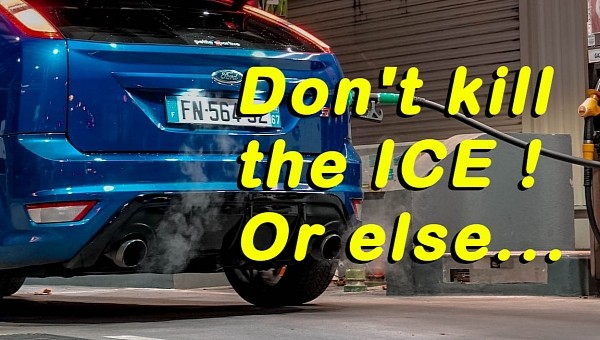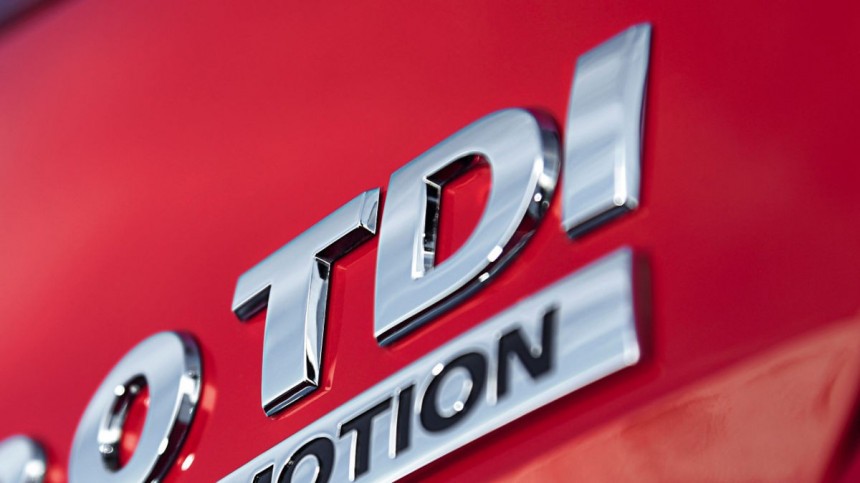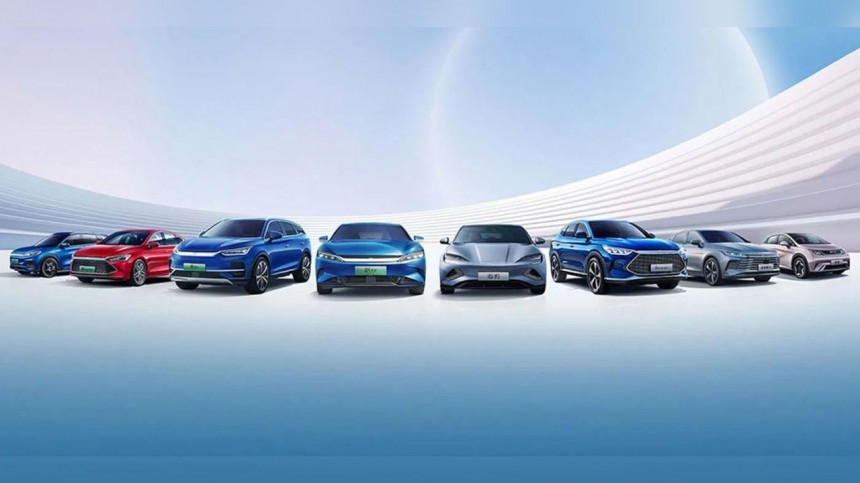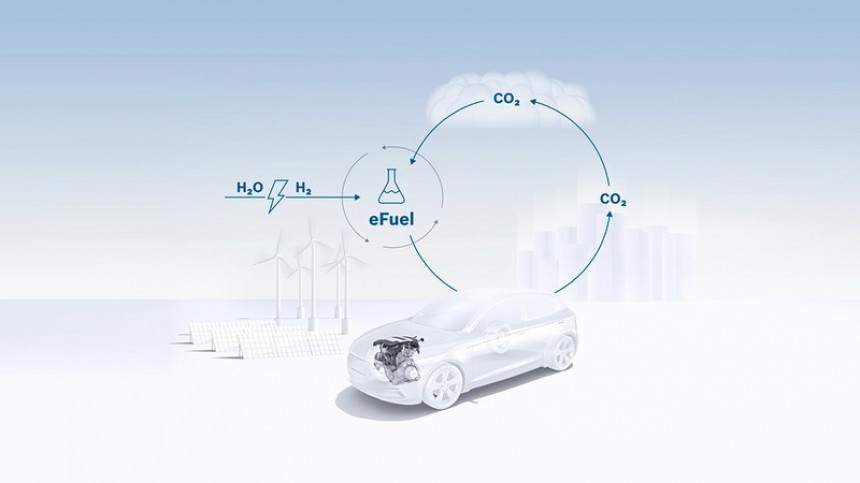Big changes face big opposition. And ditching fossil fuels is surely going to change our societybig time. In theory, it’s a change for the better. But in the process, some interest groups are poised to set the world on fire if their privileges, control, and money sources will be shut down. So, either I’m a useful idiot to ‘the green conspiracy,’ or I simply can see how crooked the carmakers are, in fact.
In the United States of America, the Inflation Reduction Act had its share of scandals and political subterfuges. But now almost everybody can understand its long-term benefits. Of course, there’s a lot of money in play, but there are also some damn good laws at work.
In the ‘United States of Europe,’ things are messy. With almost half the number of states of the U.S., the EU is plagued by double the problems. And the auto industry is nowadays a strong pillar of political decisions that are not necessarily in the best interest of EU’s citizens. It’s nothing like the UAW in the U.S.
At the same time, tens of billions of euros were unlocked to stop the bleeding and save the car companies’ asses. There were some lessons to be learned, and one of them was the car companies were very inefficient. The same as the internal combustion engine.
Some half a decade later, the ‘Dieselgate’ scandal emerged. In the U.S., diesel had a less-than-5-percent share in the passenger car market, so it was relatively easy to deal with the outcome. But in Europe, the scandal was almost as ravaging as the recent earthquakes in Turkey and Syria.
Back then, more than 50% of the EU’s passenger cars were fitted with diesel engines. The scandal was facing both economic turmoils generated by the U.S. approach to the issue and the population’s sympathy towards this type of engine.
Keep in mind that most of the recovery of the EU car industry after the global recession was due to diesel. So, changing things overnight was a real nightmare for politicians, carmaker CEOs, economists, OEMs, and policymakers.
The layoffs due to ‘Dieselgate’ were fewer, but the car industry bosses used it to put pressure on political decisions. Because, you know, politicians depend on people’s votes. And sometimes politicians just want to be voted again and again.
And this means they need to be popular. They must avoid enforcing laws that are in the long-term interest of the voters but which the voters see as hurting their lives. Of course, they are usually “helped” to see things from a certain perspective that usually “curiously” fits the car industry interests.
So, almost half a decade later, the ‘Dieselgate’ scandal was followed by the Covid-19 lockdown. Another blow for the car industry, and I really don’t envy the politicians, carmaker CEOs, economists, OEMs, and policymakers who had to deal with it.
However, I remember that, once again, the layoffs problem was largely emphasized by the carmakers. The 'technical unemployed' was a pretty interesting solution. We all paid the bill for this, but the EU made it look like the companies sustained all the effort. Nice move; Big Auto is the superhero!
The EU, not so much. Why is that? Well, we could debate a lot. But let me ask you something: how come Americans figured out that electrifying everything would make them very dependent on China’s resources, while Europeans seemed to overlook such a scenario?
I mean, in the last decade or so, car industry voices began to warn consumers about many of the electromobility downsides:
These voices seem to know a lot about how bad electromobility is. Of course, the downside of using internal combustion engines fueled by petroleum products is not to worry because we are so used to it. ICE emissions are more of a boring subject, and of course, no one cares about it if it’s not exciting.
Besides, the industry is evolving every decade:
So, how come Europeans were so dumb and the Americans so genius? Maybe Europeans were dumb on purpose. Forgive me; this is a conspiracy theory, kind of a lucky guess, so don't mind it. I was stupid enough for a brief moment to think that Europeans were seeding the problems to allow them to put the "Fit for 55" on hold for supposedly objective reasons.
The “Fit for 55” proposals concerning the car industry was closely discussed and analyzed together with experts from ACEA. This is the acronym for The European Automobile Manufacturers' Association which proclaims itself as “the voice of the EU auto industry.”
But ACEA is really an advocate for the automobile industry in Europe. As any lawyer out there, his primary concern is the interest of his client. Wait, ACEA is its own client! Because ACEA represents the 15 major Europe-based vehicle manufacturers.
Oh, my mistake; there are only 14, as Stellantis left the club in 2022. Oh, darn, Volvo also wanted to leave this year, but it’s sticking for a while. Its CEO has been re-elected as a chairman of some fancy board of ACEA, and the Chinese-owned Swedish brand is still part of ACEA.
Did I say ‘Chinese’? One of the reasons ACEA is fiercely opposing electromobility is the fact that the EU proposals in “Fit for 55” are a gift to Chinese electric car manufacturers. Who will invade Europe with their cheap EVs and will put Europe’s auto industry out of business. I’m ‘sure’ this is a ‘real concern’ and has nothing to do with manipulation and propaganda.
How about the EU killing cars? Volkswagen’s new boss complained that the new stringent Euro 7 emissions standard would increase tenfold the costs per car. The next Polo is axed because of this, the Passat has no future because of this. Everybody is into “cars will become luxury!” these days, as this is a very sensitive narrative to the regular customer.
So, once again, I must ask: how come Europeans didn’t think about Chinese cheap EVs when carving EU’s proposals? How come they miscalculated the costs implied by new standard emissions? I mean, they were debating all of these with ACEA’s experts.
And ACEA was putting pressure on EU’s policymakers with the unemployment issues. It’s mind-blowing when you hear from many sources that all those proposals were erected by some EU bureaucrats, behind closed doors, with no involvement whatsoever from the car industry. Oh, yeah, and the Earth is flat.
German powerful engines of premium German brands are designed for German Autobahn and its limitless speed limits (pun intended!). Indeed, the German car industry is the tractor for the EU’s vehicle industry. And it’s the most important for OEM engine parts and also for petroleum products companies.
But in the next decade, the German car industry must drastically change. After half a century of dominating the ICE realm, Germany must ditch the ICE. It’s almost like asking Tyson back in ’86 to step down when he was 20 years old and became the youngest heavyweight champ in history. There are consequences, as you can easily realize.
I can’t help but ask this: how come Germany didn’t take a stand sooner regarding e-fuels and internal combustion engines? I mean, Europe is already pumping a lot of money into hydrogen R&D, projects, and infrastructure. And, of course, it had to take into account that ICE vehicles will stay with us until the mid-century, so we need as-close-to-zero-emissions fuels for them.
Then there is the big problem of how much energy is needed to produce e-fuels. Green hydrogen is very close to being economically feasible to produce by splitting water. By comparison, e-fuels are still very expensive to produce and require vast quantities of renewable energy.
Of course, the industry’s excuse is that e-fuels technology is in its infancy. Like fuel cell was. Like lithium-ion batteries tech was. So, in time and properly funded, it could become a valuable technology. Which I find unlikely.
In the super-extra-best-case scenario, where unicorns are found on Mars, and Tesla goes bankrupt, the e-fuels could become cost-effective. They could be used in all the internal combustion engines in billions of vehicles, and their CO2 emissions would be offset by the CO2 used to create the e-fuels.
Now, imagine you use a quantity of renewable energy to create a certain amount of e-fuel that will burn in a 50% efficiency internal combustion engine. Using that quantity of renewable energy to charge a battery that powers a 90% efficiency electric motor is simply a better idea.
The ICE is wasting half of that renewable energy, while the electric motor is putting it to good use, with only 5-10% waste. This is just a scenario, but many scientists and analysts agree that investing in e-fuels instead of close-to-zero-emissions technologies is a big waste of time and money.
I know the industry knows this too, but they have the edge over policymakers and politicians when they put on the table the layoffs hot topic. It's like they can't accept a miner who could become a solar panel installer, for instance. The second job is less effortless, not health hazardous, and more rewarding.
But carmakers are playing the card of “we can’t change.” And people who are afraid of change are a lot out there. And politicians know it; that’s why new rounds of negotiations are around the corner. I can only hope the compromises won’t hurt people’s interest in zero pollution.
The bottom line is the Germans are just playing a game. A game of postponing the inevitable choice of ditching fossil fuels and internal combustion engines. It also has the traits of blackmailing the EU to approve more funding for the transition to e-mobility.
In the meantime, around 80 million barrels of oil are pumped daily, get through chemical refining and end up as pollutants and emissions after burning in more than 1.5 billion ICEs around the world. Every day of delay is decreasing the chances for future generations to survive in the mess we and our fossil fuels-based society created.
In the ‘United States of Europe,’ things are messy. With almost half the number of states of the U.S., the EU is plagued by double the problems. And the auto industry is nowadays a strong pillar of political decisions that are not necessarily in the best interest of EU’s citizens. It’s nothing like the UAW in the U.S.
The decade of big, unexpected crises
The global recession of 2008-2010 affected the auto industry big time. One of the recession’s main issues was laying off many workers in a short time because of plummeting sales. Tens of thousands of car industry jobs vanished in just months.At the same time, tens of billions of euros were unlocked to stop the bleeding and save the car companies’ asses. There were some lessons to be learned, and one of them was the car companies were very inefficient. The same as the internal combustion engine.
Some half a decade later, the ‘Dieselgate’ scandal emerged. In the U.S., diesel had a less-than-5-percent share in the passenger car market, so it was relatively easy to deal with the outcome. But in Europe, the scandal was almost as ravaging as the recent earthquakes in Turkey and Syria.
Back then, more than 50% of the EU’s passenger cars were fitted with diesel engines. The scandal was facing both economic turmoils generated by the U.S. approach to the issue and the population’s sympathy towards this type of engine.
The layoffs due to ‘Dieselgate’ were fewer, but the car industry bosses used it to put pressure on political decisions. Because, you know, politicians depend on people’s votes. And sometimes politicians just want to be voted again and again.
And this means they need to be popular. They must avoid enforcing laws that are in the long-term interest of the voters but which the voters see as hurting their lives. Of course, they are usually “helped” to see things from a certain perspective that usually “curiously” fits the car industry interests.
So, almost half a decade later, the ‘Dieselgate’ scandal was followed by the Covid-19 lockdown. Another blow for the car industry, and I really don’t envy the politicians, carmaker CEOs, economists, OEMs, and policymakers who had to deal with it.
However, I remember that, once again, the layoffs problem was largely emphasized by the carmakers. The 'technical unemployed' was a pretty interesting solution. We all paid the bill for this, but the EU made it look like the companies sustained all the effort. Nice move; Big Auto is the superhero!
Let’s decarbonize, but let’s not
In 2022 the EU carved the “Fit for 55” proposals package to mitigate climate change. Let’s get things clear, it’s not a copy-paste of the United States’ IRA. The Americans were bold enough to require domestic sourcing for raw materials needed for EV batteries.The EU, not so much. Why is that? Well, we could debate a lot. But let me ask you something: how come Americans figured out that electrifying everything would make them very dependent on China’s resources, while Europeans seemed to overlook such a scenario?
I mean, in the last decade or so, car industry voices began to warn consumers about many of the electromobility downsides:
- the related pollution of producing electricity in coal power plants;
- the child slavery issues related to mining cobalt in Congo;
- the projected shortages of lithium supplies if all transportation would become battery-based, and other.
These voices seem to know a lot about how bad electromobility is. Of course, the downside of using internal combustion engines fueled by petroleum products is not to worry because we are so used to it. ICE emissions are more of a boring subject, and of course, no one cares about it if it’s not exciting.
Besides, the industry is evolving every decade:
- every new engine is a few percent
less polluting,more economica,l and environmentally friendly than its predecessor;
- every new car is
less gas-guzzlingand better in aerodynamics and emission-control systems;
- every
new gimmick,high-end-best-in-class-first-of-its-kind technology is making your new car a better one.
So, how come Europeans were so dumb and the Americans so genius? Maybe Europeans were dumb on purpose. Forgive me; this is a conspiracy theory, kind of a lucky guess, so don't mind it. I was stupid enough for a brief moment to think that Europeans were seeding the problems to allow them to put the "Fit for 55" on hold for supposedly objective reasons.
It's an ACEA game, and they know it
Elon Musk is the worst on the planet when it comes to super-efficient plants and robots. Because, you know, “robots steal your job.” And “factories for electric cars lead to layoffs because EVs need fewer parts than ICE cars.” Or other assertions blaming EVs for future risky unemployment.The “Fit for 55” proposals concerning the car industry was closely discussed and analyzed together with experts from ACEA. This is the acronym for The European Automobile Manufacturers' Association which proclaims itself as “the voice of the EU auto industry.”
But ACEA is really an advocate for the automobile industry in Europe. As any lawyer out there, his primary concern is the interest of his client. Wait, ACEA is its own client! Because ACEA represents the 15 major Europe-based vehicle manufacturers.
Oh, my mistake; there are only 14, as Stellantis left the club in 2022. Oh, darn, Volvo also wanted to leave this year, but it’s sticking for a while. Its CEO has been re-elected as a chairman of some fancy board of ACEA, and the Chinese-owned Swedish brand is still part of ACEA.
Did I say ‘Chinese’? One of the reasons ACEA is fiercely opposing electromobility is the fact that the EU proposals in “Fit for 55” are a gift to Chinese electric car manufacturers. Who will invade Europe with their cheap EVs and will put Europe’s auto industry out of business. I’m ‘sure’ this is a ‘real concern’ and has nothing to do with manipulation and propaganda.
So, once again, I must ask: how come Europeans didn’t think about Chinese cheap EVs when carving EU’s proposals? How come they miscalculated the costs implied by new standard emissions? I mean, they were debating all of these with ACEA’s experts.
And ACEA was putting pressure on EU’s policymakers with the unemployment issues. It’s mind-blowing when you hear from many sources that all those proposals were erected by some EU bureaucrats, behind closed doors, with no involvement whatsoever from the car industry. Oh, yeah, and the Earth is flat.
Hello, Germany, nice having you blocking the plan
You all know what “Made in Germany” stands for. Any Tesla fanboy bows to German car-interior quality, any American driver is excited driving a “German machine,” and any other European car manufacturer is annoyed by German cars’ reliability and performance reputation.German powerful engines of premium German brands are designed for German Autobahn and its limitless speed limits (pun intended!). Indeed, the German car industry is the tractor for the EU’s vehicle industry. And it’s the most important for OEM engine parts and also for petroleum products companies.
I can’t help but ask this: how come Germany didn’t take a stand sooner regarding e-fuels and internal combustion engines? I mean, Europe is already pumping a lot of money into hydrogen R&D, projects, and infrastructure. And, of course, it had to take into account that ICE vehicles will stay with us until the mid-century, so we need as-close-to-zero-emissions fuels for them.
The e-fuels are the worst for the industry to bet on
E-fuels are synthetic fuels mainly sourced from CO2. They are not helping mitigate global warming. They just don't add more CO2 to the atmosphere because, in theory, they are made from that carbon dioxide. In real life, however, there are still issues regarding fine particles, which are inherent in any combustion process.Then there is the big problem of how much energy is needed to produce e-fuels. Green hydrogen is very close to being economically feasible to produce by splitting water. By comparison, e-fuels are still very expensive to produce and require vast quantities of renewable energy.
Of course, the industry’s excuse is that e-fuels technology is in its infancy. Like fuel cell was. Like lithium-ion batteries tech was. So, in time and properly funded, it could become a valuable technology. Which I find unlikely.
In the super-extra-best-case scenario, where unicorns are found on Mars, and Tesla goes bankrupt, the e-fuels could become cost-effective. They could be used in all the internal combustion engines in billions of vehicles, and their CO2 emissions would be offset by the CO2 used to create the e-fuels.
The ICE is wasting half of that renewable energy, while the electric motor is putting it to good use, with only 5-10% waste. This is just a scenario, but many scientists and analysts agree that investing in e-fuels instead of close-to-zero-emissions technologies is a big waste of time and money.
I know the industry knows this too, but they have the edge over policymakers and politicians when they put on the table the layoffs hot topic. It's like they can't accept a miner who could become a solar panel installer, for instance. The second job is less effortless, not health hazardous, and more rewarding.
But carmakers are playing the card of “we can’t change.” And people who are afraid of change are a lot out there. And politicians know it; that’s why new rounds of negotiations are around the corner. I can only hope the compromises won’t hurt people’s interest in zero pollution.
The bottom line is the Germans are just playing a game. A game of postponing the inevitable choice of ditching fossil fuels and internal combustion engines. It also has the traits of blackmailing the EU to approve more funding for the transition to e-mobility.
In the meantime, around 80 million barrels of oil are pumped daily, get through chemical refining and end up as pollutants and emissions after burning in more than 1.5 billion ICEs around the world. Every day of delay is decreasing the chances for future generations to survive in the mess we and our fossil fuels-based society created.










